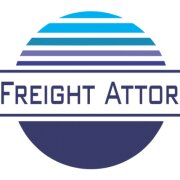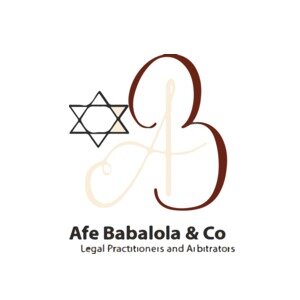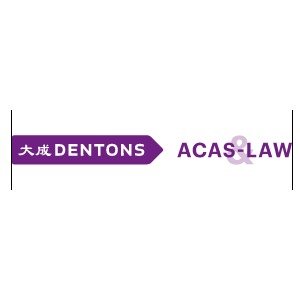Best Oil, Gas & Energy Lawyers in Port Harcourt
Share your needs with us, get contacted by law firms.
Free. Takes 2 min.
List of the best lawyers in Port Harcourt, Nigeria
About Oil, Gas & Energy Law in Port Harcourt, Nigeria
Port Harcourt, the capital of Rivers State, is one of the most prominent cities in Nigeria when it comes to the oil and gas sector. Known as the oil and gas hub of Nigeria, it hosts numerous multinational oil companies and serves as a focal point for energy-related activities. The legal framework governing the oil, gas, and energy industry in Port Harcourt is comprehensive, aiming to address the interests of stakeholders, including governmental agencies, private companies, and local communities. Lawyers in this field manage a wide range of issues, from exploration and production to distribution and environmental concerns.
Why You May Need a Lawyer
There are several situations where seeking a lawyer specializing in oil, gas, and energy law becomes essential:
- Contract Negotiation and Drafting: To ensure agreements with partners, vendors, or clients align with legal standards and company interests.
- Regulatory Compliance: Navigating the complex regulatory environment requires legal expertise to meet local and federal requirements.
- Dispute Resolution: Addressing disputes between stakeholders, including landowners and companies or between companies themselves.
- Environmental Concerns: Legal assistance is often needed to comply with environmental laws and manage risks related to oil spills and pollution.
- Licensing and Permits: Securing the necessary licenses for exploration and production involves understanding and navigating the regulatory landscape.
Local Laws Overview
The legal landscape for oil, gas, and energy in Port Harcourt is governed by a variety of laws and regulations, including:
- Petroleum Industry Act (PIA): Governs the exploration, development, and production of petroleum resources across Nigeria.
- Environmental Impact Assessment Act: Requires assessments to mitigate negative environmental impacts of energy projects.
- Local Content Act: Promotes the participation of local industries and workforce in the oil and gas sector.
- Land Use Act: Governs land ownership and use, essential for energy projects and related disputes.
Frequently Asked Questions
What is the role of the Petroleum Industry Act in Port Harcourt?
The Petroleum Industry Act is pivotal in regulating exploration and production activities within Port Harcourt, ensuring compliance and managing resources sustainably.
Why is environmental compliance crucial in this region?
Given Port Harcourt's ecological sensitivity and history of oil spills, environmental compliance is critical to protect ecosystems, avoid legal penalties, and foster community goodwill.
How can local content requirements affect my business?
The Local Content Act aims to increase the participation of local businesses and workforce, which may demand adjustments in hiring practices and supply chain arrangements.
What's involved in securing licenses for an oil exploration project?
This process includes meeting regulatory requirements, submitting technical and financial plans, and gaining approval from relevant governmental bodies.
Can disputes over land ownership affect oil projects?
Yes, land disputes can delay projects, increase costs, and necessitate legal intervention for resolution to ensure compliance with the Land Use Act.
What should I consider in drafting energy contracts?
Include clear terms on rights and responsibilities, dispute resolution mechanisms, confidentiality clauses, and compliance with relevant local laws.
How do regulations impact renewable energy projects?
Regulations fostering sustainability and environmental protection might offer incentives and also impose specific standards for renewable projects.
Are there specific regulations for oil transport in Port Harcourt?
Yes, transportation of oil is regulated to ensure safety, prevent spills, and minimize environmental impact, necessitating adherence to strict safety protocols.
What legal protections are available for indigenous communities?
Local laws and international treaties protect indigenous communities by ensuring their consultation and involvement in projects affecting their environments.
How important are legal audits in the energy industry?
Legal audits help ensure compliance, identify risks, and facilitate smooth operations by reviewing contracts, environmental compliance, and regulatory adherence.
Additional Resources
For individuals seeking legal advice or more information on oil, gas, and energy in Port Harcourt, the following resources may be helpful:
- Nigerian National Petroleum Corporation (NNPC): Offers guidelines, reports, and updates on petroleum activities.
- Department of Petroleum Resources (DPR): Provides information on licensing requirements and industry regulations.
- Federal Ministry of Environment: Key resource for understanding environmental regulations and compliance.
- Nigerian Content Development and Monitoring Board (NCDMB): Focuses on local content requirements and opportunities.
Next Steps
If you need legal assistance in the oil, gas, and energy sector in Port Harcourt, it's essential to engage with a specialized lawyer or law firm. Start by:
- Researching qualified lawyers with expertise in oil, gas, and energy law in Port Harcourt.
- Gathering relevant documents and information about your case or project.
- Scheduling consultations with potential legal representatives to discuss your legal needs and concerns.
- Clarifying legal fees and service expectations before officially engaging a lawyer.
Lawzana helps you find the best lawyers and law firms in Port Harcourt through a curated and pre-screened list of qualified legal professionals. Our platform offers rankings and detailed profiles of attorneys and law firms, allowing you to compare based on practice areas, including Oil, Gas & Energy, experience, and client feedback.
Each profile includes a description of the firm's areas of practice, client reviews, team members and partners, year of establishment, spoken languages, office locations, contact information, social media presence, and any published articles or resources. Most firms on our platform speak English and are experienced in both local and international legal matters.
Get a quote from top-rated law firms in Port Harcourt, Nigeria — quickly, securely, and without unnecessary hassle.
Disclaimer:
The information provided on this page is for general informational purposes only and does not constitute legal advice. While we strive to ensure the accuracy and relevance of the content, legal information may change over time, and interpretations of the law can vary. You should always consult with a qualified legal professional for advice specific to your situation.
We disclaim all liability for actions taken or not taken based on the content of this page. If you believe any information is incorrect or outdated, please contact us, and we will review and update it where appropriate.

















